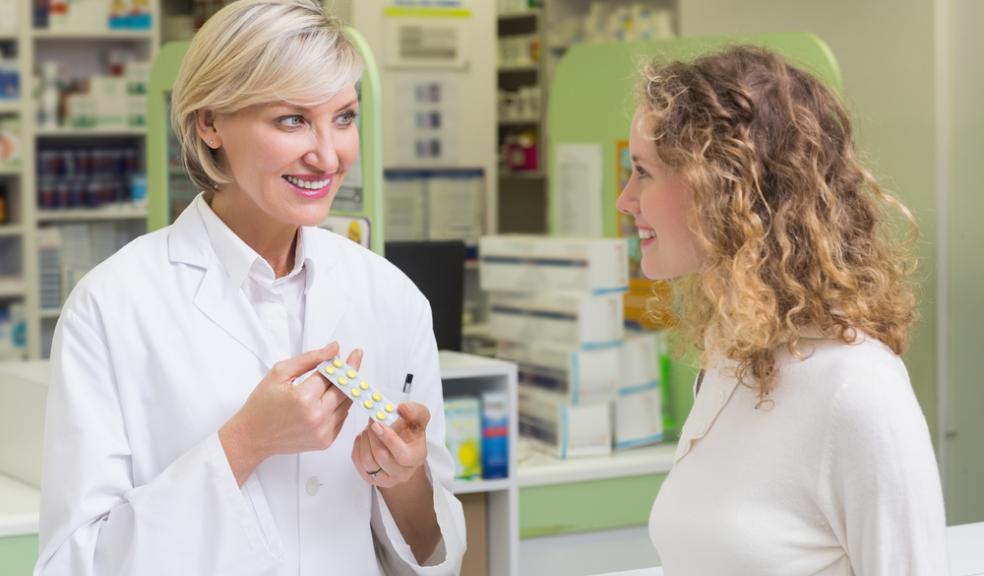
Primary care funding boost
A further £890,000 is being put into a series of testbed projects across Devon and Cornwall to improve access to primary care.
The money will enable schemes involving GPs and pharmacists to be extended into the summer, so their full effectiveness can be analysed and decisions taken on whether they are worth investing in for the long term.
Some 40 different schemes are being piloted – many involving multiple GP surgeries working together – following a successful £3.575m bid last year to the Prime Minister’s Challenge Fund. The bid was one of the biggest in the country.
Although due to end in March, the latest tranche of money from the challenge fund means schemes can be extended for at least three months. Some may be adjusted in the light of experience so far.
One scheme that shows promising early signs is Pharmacy First, under which community pharmacists across Devon have stepped up support for people who suffer minor and winter ailments.
They are even able to provide some medicines that are usually only available on prescription, to save on a trip to the doctor. Some also offer an emergency service for people who need repeat prescriptions when their surgery is closed.
The scheme is designed to make healthcare more accessible and to ease pressure on GPs, so they can spend more time with patients who have more-serious conditions.
After being tried in western Devon in 2013, Pharmacy First has been extended to northern and eastern Devon and to South Devon and Torbay using challenge fund money. Some 126 pharmacies are taking part in the new areas, covering nearly every market town.
Figures for the new area from 1 November 2014 to 8 February 2015 show that:
· 3,340 people had been seen under the Pharmacy First Scheme
· 2,798 went for help with ailments such as headaches, coughs, conjunctivitis or urinary tract infections
· 542 used the emergency scheme for repeat medications (South Devon and Torbay only)
· 1,990 (60%) of patients said they would have made a GP appointment if pharmacy care had not been available
· 78 said they would have gone to A&E
Oksana Riley, a community pharmacy development lead for Northern, Eastern and Western Devon Clinical Commissioning Group, said: “This is a very exciting development that will greatly improve patients’ access to services at a pharmacy that they may have previously only been able to get from their doctor.
“Community pharmacies are highly accessible, located in the heart of communities where people live, work and shop and offering expert advice and treatment. You don’t need an appointment to see your pharmacist and many pharmacies are open in the evenings and at weekends.
“Advice from your community pharmacist is always free. Pharmacists are highly-qualified health professionals and are experts in the use of medicines and they will advise if your condition needs to be seen by another health professional such as a GP.”
Other developments covered by the challenge fund include:
· Collaboration between GP practices to offer evening and weekend opening hours; for example, Exeter Primary Care, which has brought 16 practices together so patients can ask to see a doctor or nurse between 8am and 6pm on Saturdays and Sundays
· The extension of services at minor injury units in north and east Cornwall to help patients with minor illnesses
· The opening of urgent care centres at some community hospitals in Cornwall, run by GPs and experienced nurses, and available seven days a week for people with illnesses and injuries; no appointment is required
· The offer by Devon Doctors, the out-of-hours service, of bookable appointments for patients with local GPs in the evenings and at weekends in Barnstaple, Bideford, Plymouth, Honiton and Exeter
· Intensive support for frail older people and other high-risk patients, seven days a week, from practices in South Devon and Torbay
· The running of additional Saturday morning surgeries for the five weeks around Christmas and New Year by practices in Northern, Eastern and Western Devon
· The piloting by some practices in Devon of consultations via Skype, the internet videophone system
· Investment in IT systems to help join up practices and support collaborative work on extended opening times, for example
The three clinical commissioning groups (CCGs) in Devon and Cornwall are working with the schemes in their own areas to make sure the new funding is spent in the best way.
Linda Prosser, Director of Commissioning for NHS England in the South West, said: “The extra money is very welcome, as it means we can keep these pilot projects going long enough to get a good idea of their effectiveness.
“We’re already seeing signs that they can make a difference, supporting new ways of working and taking some of the pressure off the wider health system. Once we’ve got the final results, we’ll be able to see what should become part of everyday healthcare for the future.”













